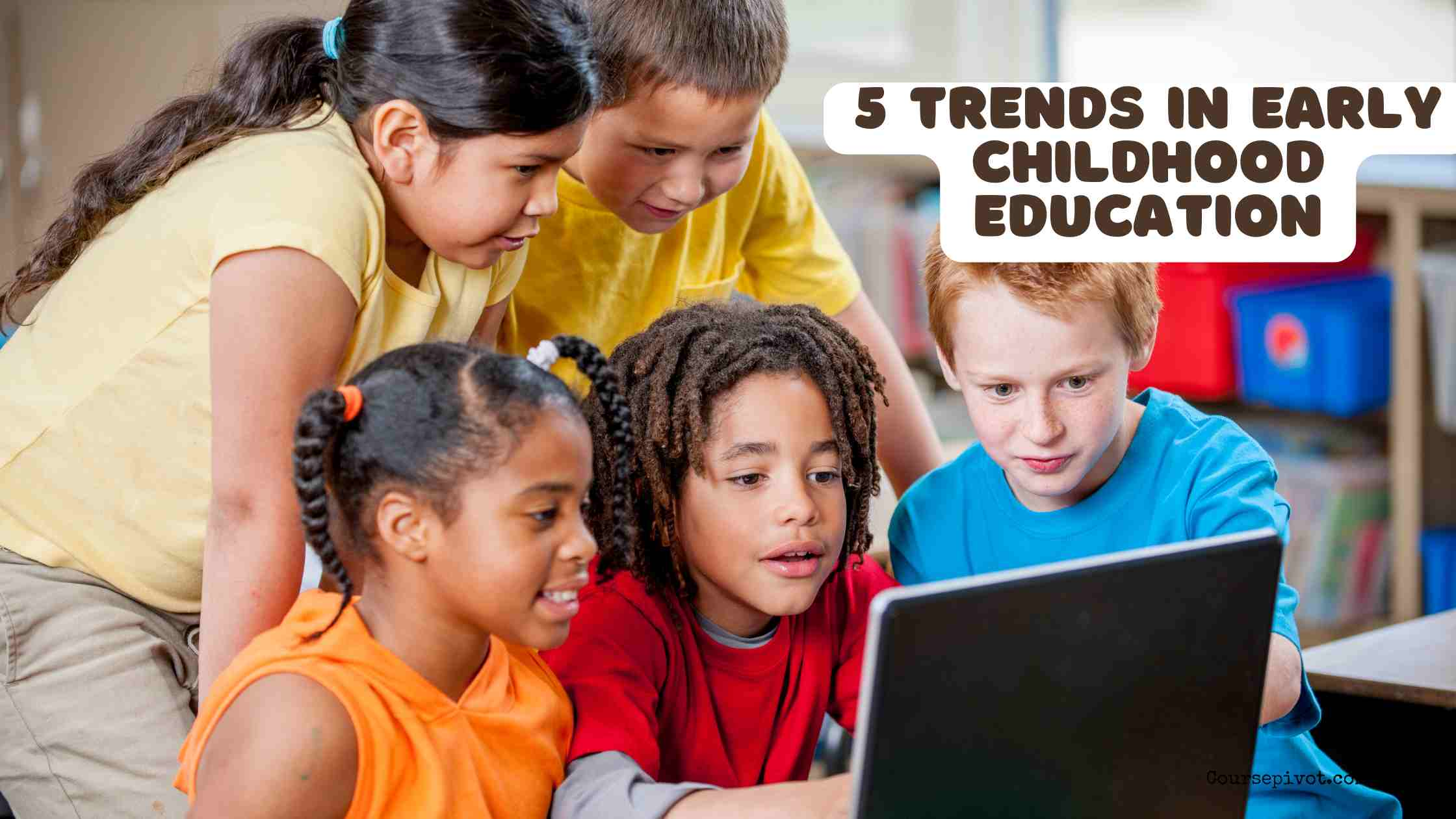
5 Trends in Early Childhood Education
What’s shaping the future of early childhood education as we move into 2025? With over 4.2 million children under 5 served by early learning programs in the U.S., per 2024 First Five Years Fund data, trends in early childhood education are evolving to meet the needs of young learners, families, and educators. These shifts reflect a growing emphasis on quality, equity, and innovation.
Table of Contents
This blog explores five key trends in early childhood education, addressing current issues in early childhood education and their impact on child care policies and infant-toddler care.
1. Emphasis on Social-Emotional Learning (SEL)
Social-emotional learning (SEL) is a cornerstone of early childhood education trends, with 70% of educators integrating SEL to nurture empathy, self-regulation, and resilience, per 2024 Portobello Institute data. Storytelling, role-playing, and mindfulness help children manage emotions, vital for child’s mental health. This trend addresses current issues in early childhood education like rising stress in young learners. SEL fosters lifelong social-emotional skills in childcare trends.
Try incorporating daily mindfulness exercises, like a 5-minute breathing activity, using resources like Cosmic Kids Yoga. This supports children’s research on emotional growth and builds early childhood topics into daily routines.
2. Integration of Technology in Learning
Childcare trends increasingly embrace technology, with 65% of centers using tools like interactive apps and tablets to boost engagement, per 2025 Foundation Education reports. Digital storybooks and learning platforms like ABC Mouse enhance literacy and numeracy. This addresses early childhood education research topics on digital literacy. However, child trends stress balancing screen time to avoid overstimulation in infant-toddler care.
Explore apps like Seesaw for interactive activities, ensuring no more than 30 minutes of daily screen time for preschoolers, per childhood websites like NAEYC. This aligns with new trends in childcare for safe tech use.
3. Play-Based and Nature-Based Learning
Play-based learning, including outdoor activities like nature walks, is surging, with 75% of programs adopting it for critical thinking and creativity, per 2024 NSW Department of Education data. Trends in childcare show play fosters problem-solving, addressing what challenges exist in early childhood intervention like developmental delays. Nature-based learning promotes environmental awareness, a key early childhood education topic.
Encourage cooperative play, like building puzzles, or set up a small garden project, using children research from Zero to Three for guidance. This supports early childhood education industry goals for holistic development.
4. Focus on Workforce Development
The early childhood education industry faces staffing challenges, with a 38,200-worker shortage since 2020, per 2024 Center for American Progress data. Child care policies are pushing for better wages and training, as 40% of educators are women of color earning $11.35/hour, per 2020 Economic Policy Institute. Higher qualifications, like Certificates III/IV, are in demand, per child trends.
Support local childcare centers by advocating for funding like the $3.5 billion McKinney-Vento Grants, per NAEH, or volunteer to mentor aspiring educators. This tackles current issues in early childhood education 2023 and beyond.
5. Addressing Equity and Access
With 11.6 million U.S. children in poverty, only 11% of homeless infants and toddlers access early learning, per 2022 SchoolHouse Connection. Child care policies like the Child Care for Working Families Act aim to expand universal preschool, addressing current issues in early childhood education like affordability (infant care costs $1,188/month, per FFYF). This trend targets infant-toddler care challenges for equitable access.
Advocate for policies expanding Head Start, which served 764,424 children in 2023, via National Alliance to End Homelessness campaigns. Share homelessness facts on social media to raise awareness
Why These Trends Shape the Future
These trends in early childhood education—SEL, technology, play-based learning, workforce development, and equity—address current issues in early childhood education like access and quality. They align with children’s research, showing 85% of programs with these practices improve outcomes, per 2025 data. They tackle infant-toddler care challenges holistically. Together, they redefine early childhood education trends for 2025.
Start with one action, like advocating for local preschool funding or trying a play-based activity, to support childcare trends. These steps, grounded in child trends data, foster a brighter future for young learners.
Cite this article
You can copy and paste your preferred citation format below.
Martin, L. & Arquette, E.. (2025, July 3). 5 Trends in Early Childhood Education. Coursepivot.com. https://coursepivot.com/blog/5-trends-in-early-childhood-education/



